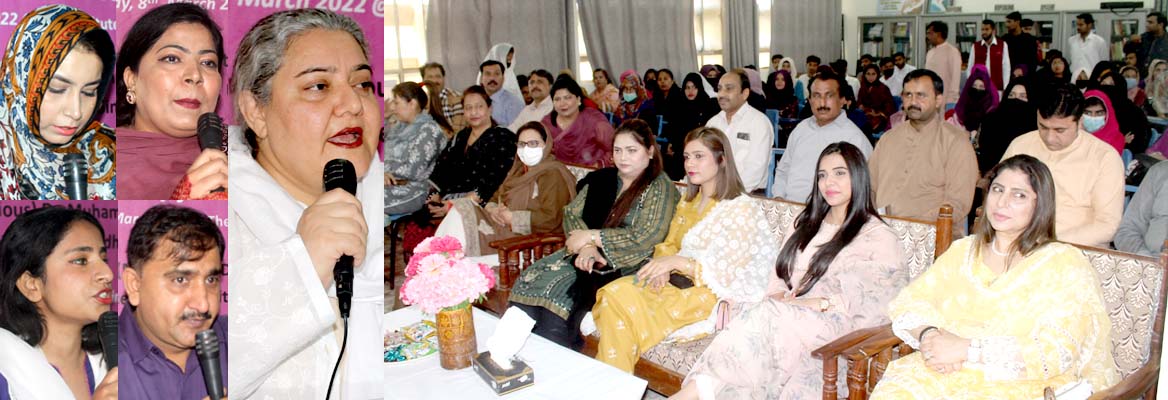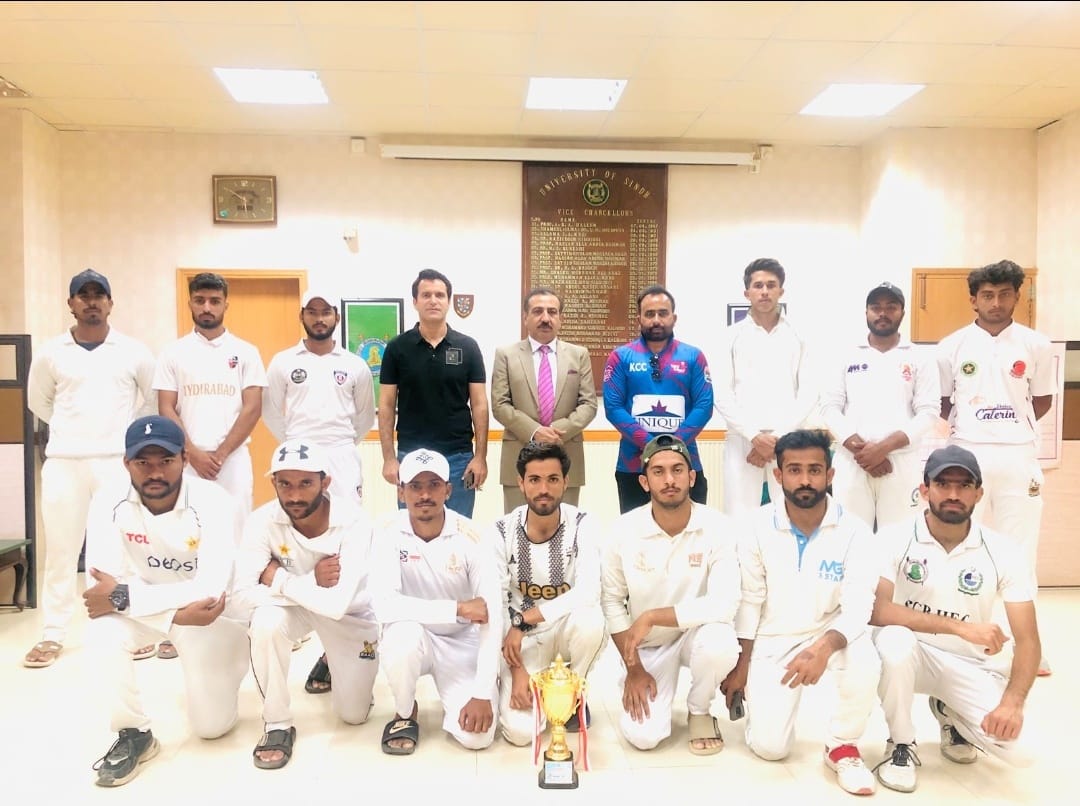
Call for giving due opportunity to women to works in different fields sans any unfairness
Speakers at a seminar have said that no nation can prosper unless its women are given due importance and opportunity to work in the field of their choice without any discrimination demanding that Government must provide chances to ladies to freely work with different organizations in the country.
They said there was no point in confining ladies in the four walls of home adding that women in Pakistan needed education, employment opportunities, change in the perception of women's roles and status and public support.
This they said while addressing the seminar titled “Gender equality today for a sustainable tomorrow” held by the Institute of Gender Studies at its auditorium hall here on Tuesday. A senior professor Dr. Ambreen Zaib Khaskhaili representing Vice-Chancellor Prof. Dr. Muhammad Siddique Kalhoro presided over the seminar.
Director of the institute Prof. Dr. Misbah Bibi Qureshi welcomed the guests as well as participants and said that women living in the rural areas had no say in their social life despite performing bulk of the domestic duties, including work in fields, fetching water, caring and fostering cattle.
Highlighting the importance of creating conditions favorable to females for their full and equal participation in social development, she said that discrimination against women could only be ended through social change, and it was possible through education.
She called for meaningful engagement of women to boost national development in the country and added that prosperity was best achieved by ensuring equal rights to women and addressing their issues related to social status and financial security.
“To help materialize the dream of a model Islamic welfare state and Pakistan’s uplift , it is vital to guarantee equal rights to women”, she said, adding that development goals could not be achieved when more than 100 million women in the country were kept out of economic activity and lacked basic facilities.
Dr. Qureshi further said that no state could develop without contribution from their women and it was imperative that all segments of society work harmoniously.
Addressing the occasion, Dr. Ameer Ali Buriro termed gender equality as a central component to development and said that despite women's significant contribution to economic and social growth; they were disproportionately impacted by poverty; while their efforts were undermined due to cultural norms and systemic barriers.
He said that the cultural norms had limited their full participation in leadership and key decision-making processes, including decisions that affected them primarily.
Unfortunately, he said, the emergence of the COVID-19 pandemic had exacerbated the poor socio-economic status of women and threatened the achievement of the sustainable development goal leading to achieving gender equality and women empowerment.
Dr Buriro urged on creating opportunities for inclusion of women and differently-abled persons in education, health and various sectors of the economy and said joint and coordinated efforts would help establish an inclusive society.
Prof. Aftab Rajar said that women had been struggling for their rights for centuries. Even those established democracies that these days stood out as models in practising the concept of equality for women, such as the United States and Switzerland, had previously excluded women from exercising their vote in national elections.
He said since the middle of the last century, the world had witnessed a remarkable transformation in the attitude of these countries towards women.
“Women in the West, Japan, China, South and North Korea, the Philippines, Thailand and in several countries of Africa and Asia including Sri Lanka, India and Bangladesh are on the march, contributing towards the economy, participating in politics and raising the standard of living of their families”, he said.
A lady from the development sector Khair-un-Nisa urged media and opinion makers to impart awareness about women's rights.
“Any form of violence against women should be discouraged and all women be provided a safe and protective environment,” she said while stressing upon men to support their women.
“Yet again, one of the major reasons why Pakistan has lagged behind in all development indexes is due to biased policies towards females”, she added.
Miss Mukhtiar Bhatti said that no country could be considered truly democratic unless its women were given their genuine right to live at its behest and seek higher education.
“Although Pakistani women are active in several fields and have even taken up highly challenging assignments such as being part of space programmes, as pilots, doctors, nurses, engineers, technicians, in education, politics, and media, we still need greater female participation in these and other fields”, she added.
Pointing out to the empowerment of women in the political system, she said women had 33 per cent representation at the local government level, while at the national and provincial assembly level their representation was 20 per cent and out of the 1,170 members of the assemblies 233 were women.
Besides, two federal ministers, five ministers of state, six provincial ministers, 10 parliamentary secretaries and 12 chairpersons of standing committees were women, she added.
Among many others, Dr. Nek Muhammad Shaikh, Dr. Irfan Shaikh, Dr. Hamadullah Kakepoto, Saher Naqvi, Shabnum, Dr. Soniha Aslam, Aashiq Hussain, Dr. Shahmurad Chandio, Dr. Ahmed Ali Brohi, Dr Naheed Arain, Dr Bashir Ahmed Rind also participated in the seminar.


